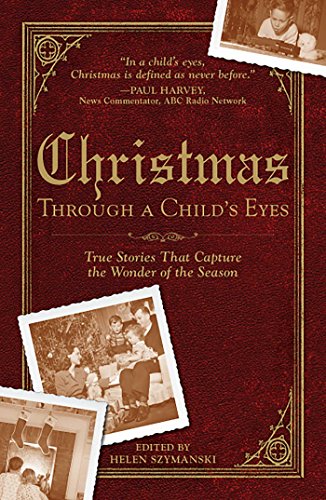cj Sez: Because I'm "trying" to do NaNoWriMo, today's post is a repeat of a popular one done in 2015. The English language is littered with obscure quirks
and twists, and writers seem to find a way to encounter every one of them. A
few of my favorites follow.
The Christmas Grinch notwithstanding, here are proper usages
for Stink, Stank, Stunk . . .
… Stink is the
present or future form.
… Stank is the
past form, use it when you refer to some time that has already happened, such
as last night, yesterday, or last week.
… Stunk is the
participle form, it means you must use have,
has, or had with it).
… What is that stink
I smell?
… Frying that fish will stink
up the whole house.
… She sure stank
up the kitchen last night with that burned milk!
… I'm sorry, but the baby's diaper really stank on the way home yesterday!
… The house hasn't stunk
this badly since the day we found that rat behind the dryer.
… If you hadn't stunk
up the bathroom, I wouldn't have opened the window and let your orchids freeze
in the snow.
Then there’s this tricky usage/spelling: Pick up, Pick-up, Pickup
… Will you pick up
my dry cleaning?
… “Have we met” is such a stale pick-up line.
… My pickup truck
is red.
\\
(Following are excerpts of a blog by a fellow
Sisters-in-Crime member:)
IN DEFENSE OF THE MALIGNED “WAS”
By Lois Winston
Editors like action verbs. “Was,” along with its brothers
and sisters (is, am, are, been, were) is passive and a surefire way to a
rejection letter.
Wrong!
Passive voice is when an action is acted upon the subject,
rather than the subject acting.
The car was driven by
Anna is a passive sentence. Anna
drove the car is an active sentence. However, Anna was happy to drive the car is not a passive sentence. Anna is
expressing emotion. She is acting, rather than being acted upon. Of course,
there are more interesting ways to write the sentence to show Anna’s emotions,
but that’s a separate discussion.
One of the easiest ways to tell whether your sentence is active
or passive is to analyze the position of the subject, verb, and direct object.
In active voice, the subject (the one performing the action)
will come before the verb (the action), and the verb will come before the
direct object (that which is being acted upon.)
There are instances, though, when passive voice is necessary
to the unfolding of a story or better suited to the realism of the dialogue.
When we speak, we don’t first think whether our sentences are active or passive
before uttering them. We just speak them.
Manipulate a sentence to avoid passive voice in
conversation, and you often transform snappy dialogue into stilted dialogue.
For example: Billy ran into the house and cried, “Mom! Come quick. Snoopy was hit by a car!”
This passage accurately illustrates the way a child might respond to a car
hitting his dog. Snoopy was hit by a car
is a passive sentence because Snoopy is being acted upon by the car, but the
child mentions Snoopy first because the dog’s welfare is uppermost in his mind.
Also, by placing the last sentence in passive voice, the author is actually
ratcheting up the tension. We don’t know until the very end exactly what hit
Snoopy. A stray baseball? A nasty neighbor? A falling tree limb? Although “A car hit Snoopy” is active voice,
using it actually lessens the impact of the sentence.
Still squeamish about the use of “was”? After you have
finished your manuscript, do a search of the word. Check each sentence to see
if you can rewrite it to avoid using “was.” If you can, and it doesn’t detract
from the pace, dialogue, or meaning of the passage, do so. If not, leave it.
Some “was” were meant to be.
Except . . . the subjunctive:
The what, you ask? Subjunctive case or mood is one of the
most misunderstood rules in the English language -- and virtually unknown to
most contest judges who will circle a “were” and write in a “was” because the
subject is singular.
The subjunctive applies to cases of “wishfulness” or “what
if” situations. In these cases, “was” becomes “were,” as in, I wish I were
taller. “Were” is also used when a sentence or clause uses “if,” “as if,” or
“as though,” but only in instances where the statement is contrary to fact.
Examples include: If I
were taller, I could see the stage better, Her twelve year old son acts as if
he were in kindergarten, or The maid
behaved as though she were queen. Because I cannot grow taller, the
twelve-year-old is not in kindergarten, and the maid is not a queen, all the
statements are contrary to fact, and “was” becomes “were” even though the
subjects are all singular.
Keep in mind, though, that the key statement here is
“contrary to fact.” “If” statements that are not contrary to fact retain the
singular form of the verb. “If I was at
Starbucks that day, I don’t remember” is a correct sentence because the
statement is not contrary to fact whether or not I can recall the event.
cj Sez: I keep a list of the quirks and twists that I run
across, like the stink, stank, stunk, and Lois’s blog above. Do you keep a list, or
do you run to Google?
Okay, you-all guys keep on keeping on, and I’ll try to do
the same. In the meantime, I wish you all a Happy Thanksgiving.
cj
PS: Thank you for your
prayers for my sister. The stroke slowed her down but didn’t cripple her. She is
recuperating at home and moving forward with the necessary changes in her life.
PPS: Pray for peace
in this crazy world.
“Bad
Day at Round Rock” in The
Posse Western anthology of 8 short stories @99
cents
Bodies in Motion — 10 book publisher’s bundle
@99 cents (includes Choosing Carter)
Note:
On the bundles, the “look inside” invitation gives you a taste of only the
first book.































